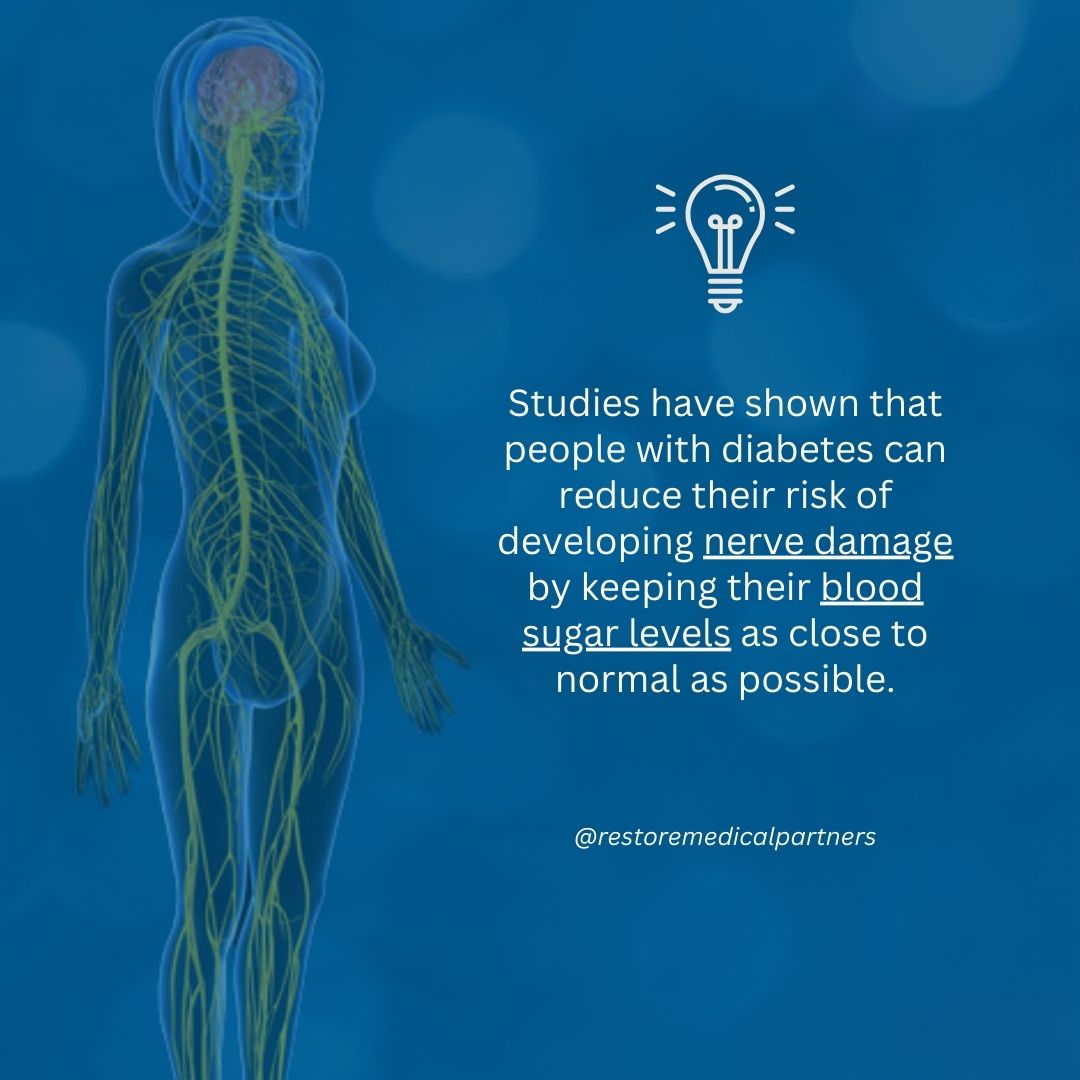Peripheral Neuropathy

Peripheral neuropathy is another term for nerve damage. This can be caused by chronically high blood sugar and diabetes, autoimmune diseases, multiple sclerosis, stroke, and other rare disorders. It leads to numbness, loss of sensation, and sometimes pain in your feet, legs, or hands. It is the most common complication of diabetes.
About 60% to 70% of all people with diabetes will eventually develop peripheral neuropathy, although not all suffer pain. Studies have shown that people with diabetes can reduce their risk of developing nerve damage by keeping their blood sugar levels as close to normal as possible.
At Restore Medical partners, we work in combination with local neurologists, rheumatologists and primary care physicians to diagnose, prevent, treat and control pain related to peripheral neuropathy.
We offer comprehensive treatments including:
- Infusions Techniques: We offer ketamine infusions to re-program the central nervous system, and pain relief can be dramatic and long-lasting.
- Spinal Cord Stimulation: This method involves tiny electrodes being placed within the epidural space close to the spinal cord. The electrodes release a small electrical current to the spinal cord that inhibits pain transmission, thereby providing pain relief.
- Peripheral Nerve Stimulation: This method involves tiny electrodes being placed close to the affected nerves. The electrodes release a small electrical current that inhibits pain transmission and provides pain relief.
- Medical management: Important, pharmacological treatments for medical management of peripheral neuropathy can be membrane stabilizing drugs, NSAIDs, or opiate-like medications.
- Physical therapy: In order to decrease or prevent functional limitations, physical therapy and occupational therapy are recommended in combination with medical treatments.
REFERENCE:
http://www.webmd.com/diabetes/peripheral-neuropathy-risk-factors-symptoms#1


